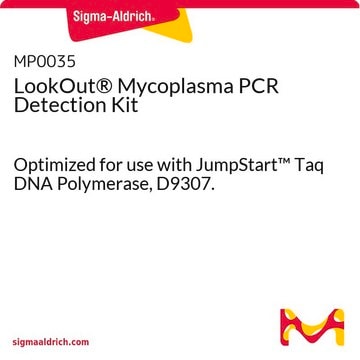NA2010
GenElute™ Blood Genomic DNA Kit
sufficient for 70 purifications
Synonym(s):
Blood Genomic DNA, Gen Elute
About This Item
Recommended Products
usage
sufficient for 70 purifications
technique(s)
DNA purification: suitable
storage temp.
15-25°C
room temp
Looking for similar products? Visit Product Comparison Guide
General description
Application
- to extract DNA from samples of large granules (LG) and smaller granules (SG) obtained from vasectomized rabbits
- to isolate DNA from the blood samples
- to extract whole blood DNA from the left blood cells
- restriction endonuclease digestions
- PCR
- Southern blots
- sequencing reactions
- cloning
Features and Benefits
- Starting material: Up to 200 μl of fresh or aged blood
- Expected yield: Up to 10 μg
- Elution volume: 400 μl
- Time required: <40 min
- A260/A280 ratio: 1.6 - 1.9
- Compatible with many anticoagulants, including EDTA, Heparin, and Sodium Citrate
Principle
The expected yields of genomic DNA will vary depending on the amount and nature of the starting material used (for example, 4 to 10 μg of RNase A-treated DNA can be isolated from 200 μl of fresh whole blood in less than one hour). DNA purified with this kit has an A260/A280 ratio between 1.6 and 1.9 and can be up to 50 kb in length.
Other Notes
Legal Information
recommended
related product
Signal Word
Danger
Hazard Statements
Precautionary Statements
Hazard Classifications
Acute Tox. 4 Oral - Aquatic Acute 1 - Aquatic Chronic 2 - Eye Dam. 1 - Resp. Sens. 1 - Skin Irrit. 2 - STOT SE 3
Target Organs
Respiratory system
Storage Class Code
10 - Combustible liquids
Certificates of Analysis (COA)
Search for Certificates of Analysis (COA) by entering the products Lot/Batch Number. Lot and Batch Numbers can be found on a product’s label following the words ‘Lot’ or ‘Batch’.
Already Own This Product?
Find documentation for the products that you have recently purchased in the Document Library.
Customers Also Viewed
Protocols
Whole genome amplification (WGA) of plasma and serum DNA presents a unique challenge due to the small amount of nucleic acid in such samples.
Whole genome amplification (WGA) of plasma and serum DNA presents a unique challenge due to the small amount of nucleic acid in such samples.
Whole genome amplification (WGA) of plasma and serum DNA presents a unique challenge due to the small amount of nucleic acid in such samples.
Whole genome amplification (WGA) of plasma and serum DNA presents a unique challenge due to the small amount of nucleic acid in such samples.
Our team of scientists has experience in all areas of research including Life Science, Material Science, Chemical Synthesis, Chromatography, Analytical and many others.
Contact Technical Service











